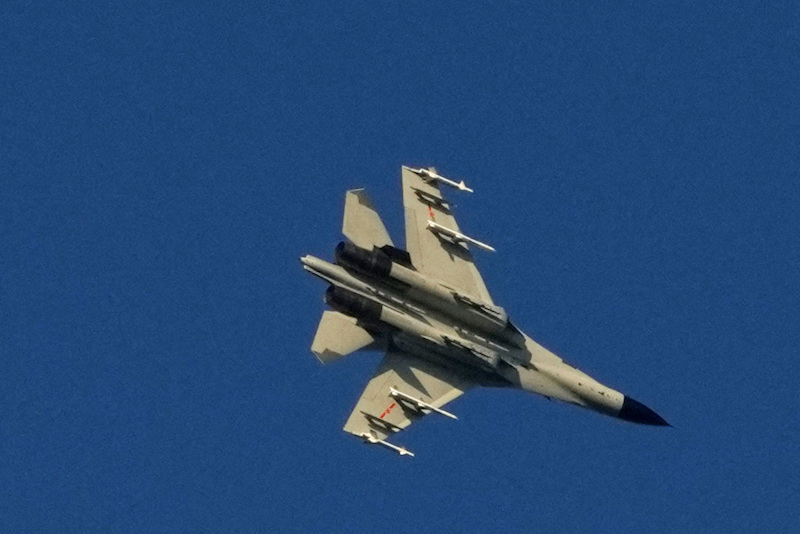Chinese aircraft and warships simulated an attack on Taiwan on Saturday, island officials said, in retaliation for a visit by US House Speaker Nancy Pelosi.
The visit by Pelosi, which was seen as a provocation to boost the country’s push for independence, infuriated Beijing and prompted unprecedented military drills that have included ballistic missiles fired over Taipei, the capital.
The Chinese exercises – centred on six locations around the island – are scheduled to last until midday on Sunday.
Pelosi’s brief unannounced visit during the week to the self-ruled island claimed by China hit a raw nerve and led to Beijing imposing sanctions on Pelosi and her family, plus the suspension of bilateral cooperative agreements on security, climate change and a raft of other issues.
Taiwan’s defence ministry said multiple Chinese ships and planes conducted missions in the Taiwan Strait, with some crossing the median line, an unofficial buffer separating the two sides, in what the Taiwan military described as a simulated attack on the island.
Chinese warships and aircraft continued to “press” into the median line of the Taiwan Strait on Saturday afternoon, a person familiar with security planning said.
Off Taiwan’s east coast and close to Japanese islands, Chinese warships and drones simulated attacks on US and Japanese warships, the person added.
Taiwan’s army broadcast a warning and deployed air reconnaissance patrol forces and ships to monitor while putting shore-based missiles on stand-by.
Its defence ministry also said it fired flares late on Friday to warn away seven drones flying over its Kinmen islands and unidentified aircraft flying over its Matsu islands. Both island groups are close to mainland China’s coast.
On Friday, China’s military said it conducted air and sea drills to the north, southwest and east of Taiwan to test is forces’ “joint combat capabilities”.
Shortly after Pelosi’s delegation left Japan on Friday, the final stop of a week-long Asia tour, China announced that it was halting dialogue with the United States, including contacts between theatre-level military commanders and on climate change.
US Secretary of State Antony Blinken, speaking on a visit to the Philippines, said the cessation of dialogue on issues including narcotics and transnational crime, was “irresponsible”, and security contacts were vital to ease tension.
Blinken said China’s stopping bilateral links on the climate, in particular, would punish the world.
“Suspending climate cooperation doesn’t punish the United States, it punishes the world, particularly the developing world,” he told a news conference. “We should not hold hostage cooperation on matters of global concern.”
Chinese foreign minister Wang Yi told a media briefing on Friday that Blinken was spreading “misinformation”, adding: “We wish to issue a warning to the United States: Do not act rashly, do not create a greater crisis,” Wang said.
- Reuters with additional editing by Jim Pollard
ALSO SEE:
Cutting Military Links Deepens Risk of US-China Clash: Analysts
China Suspends Military Talks, Climate Cooperation With US
China Imposes Sanctions on Pelosi and Family – CNBC
China Hits Taiwan With Economic Sanctions as Pelosi Visits
























